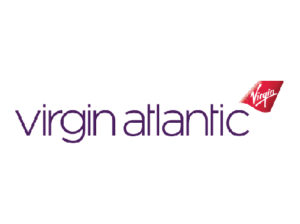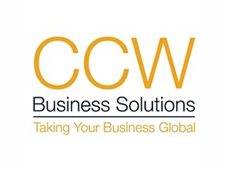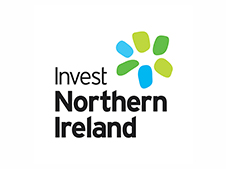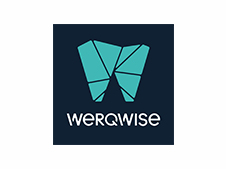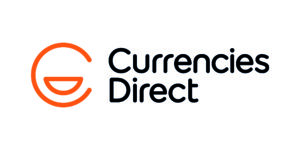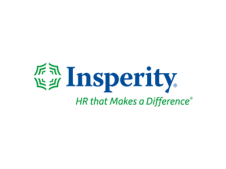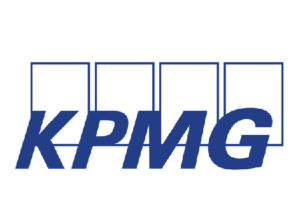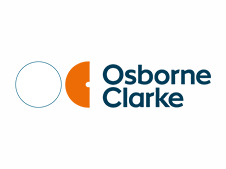12 months ago Facebook had just filed – and was about to launch its stratospheric $100 billion IPO.
This spring – how times have changed. Its shares are now valued at around 25% less and the company is still wading through rafts of lawsuits after its stocks plunged by half of their peak value in their opening three months.
During last year’s BABC Venture Capital event, much of the took was about what would happen with Facebook – so it was only natural to begin this year’s event, held on Wednesday February 27 at the beautiful Quadrus Conference Center in Menlo Park, by going back to what the panel had said then…
“My prediction was that Facebook would double in price,” said Stephen Eichenlaub, Managing Director of Platform, Cleantech, and Digital Health at Intel Capital. “I was right – they just mispriced the IPO!”
Fellow panelist Bill Reichart, Managing Director of Garage Technology Ventures, was proud to say he was pretty close to the mark last time.
“I remember last year people were valuing Facebook at $100 mm. Unlike Groupon or Zynga, I do think Facebook has more inherent value and long-term sustainability, as long as it didn’t get creepy. It hasn’t – but it does have its moments. My prediction was that I didn’t think it was worth $100bn – I could see it being worth $50, but not $100.
“It’s surprising how much grief Facebook STILL get for their IPO,” he continued. “I can understand mispricing a little bit and getting some grief, but the degree to which people consider it to be a disaster is surprising to me. Groupon and Zynga’s IPOs really were disastrous. Facebook was not a disaster by any stretch – its current market capitalization is $65 billion or thereabouts. They really are good at executing continuous innovation and no one that I can see is threatening them.
“There is some data around that suggests some people are getting a bit bored with it – but they still haven’t tapped the monetization potential of a billion people.”
Whilst the image of Facebook itself may have been tarnished somewhat due to the embarrassment around its IPO, the focus on mobile social platforms and applications it ushered through in its wake is certainly very much on the ascendant.
“Facebook has done a good job getting businesses to create a Facebook page,” Reichart said. “But that’s just one corner of what social means in the broader business communications world. When we talk about social being important – you can see it in every company out there, every boardroom – that awareness that the process of lead generation is dramatically different than it was 5-10 years ago. That difference is driven by social, social and mobile. Clearly that consumer social/mobile/gaming phenomenon is dribbling over into enterprise. It doesn’t mean that the brands are. The model is completely pervasive and it has utterly changed the way marketers have to think about their communications strategies.”
If Facebook was last year’s big bucks IPO, is Twitter to be the next in line? There has been considerable speculation that the micro-blogging platform, widely valued at around $10 billion, could be ready to file by the last quarter of 2013 or early 2014.
“When Twitter is able to monetize and capture that concept of people engaged in a topic that could be relevant to you commercially – that is pretty interesting,” Reichart said.
“But I believe it won’t go public – the highest use of Twitter is going to be as an acquisition. It makes more sense for it to behave like Skype did. Skype has monetized aspects, but it was worth so much more to Microsoft as an acquisition than a standalone entity –similarly Twitter will be worth so much more to someone as an acquisition than as a standalone.”
Stephen Eichenlaub, was even less confident in Twitter’s ability to generate value for investors. “Twitter is fun to follow, entertaining to use. But as a business model and a value proposition I just don’t grasp it. I would say it is heading for the same kind of tripwire as Facebook – how can it maintain an engagement with its users once it’s lumbered with ways to make money.”
Last year Groupon was the world’s fastest growing company, boasting the highest valued tech IPO since Google’s. Now it is valued at scarcely more than its assets. Social gaming firm Zynga enjoyed another hugely hyped IPO, initially raised $1 billion. Barely six months later its stocks crashed by 40% after posting a surprise loss, prompting a surge of questioning over the validity of its fundamental business model. For our moderator Richard Waters, West Coast Editor of the Financial Times, last year was “a late stage bubble, on the back of the likes of Zynga and Groupon riding high, which really pushed prices up over the year. Now, the question is: has discipline started to re-assert itself?”
“There is a school of thought in the VC industry that valuation doesn’t matter as long as you pick the right companies,” said Mitchell Kertzman, Managing Director of Hummer Winblad Venture Partners. “On the one hand it’s true – if you knew you were always picking the right companies, you would always be ahead – but on the other hand, it’s a completely false way of thinking – in that you never can know if you’re picking the right companies. Even if an entrepreneur has had two or three successes behind them, that is no predictor of how well they will do this time.”
Kertzman said the larger venture funds (of more than $1 billion) have widely signed up to this way of thinking in their willingness to disregard valuations and put up much larger investments in pursuit of the ‘right’ companies. The figures certainly seem to support this interpretation; a recent study published by The Big Data Group shows fewer startups received VC funding in 2012 than in the previous year – but those that did benefitted from much higher investments (22% more on average).
Kertzman does not see this trend as a particularly healthy one. “Is the venture industry heading into trouble eventually with these kind of investments? That does worry me a little bit…. I don’t find the kind of model of investment [followed by some of the larger funds] as sustainable.”
Created with Admarket’s flickrSLiDR.
For Stephen Eichenlaub, mobile companies – which saw a 75% increase in venture funding last year compared with the year before – are still the ones to watch. “The mobile space is really heating up – particularly the infrastructure around mobile apps and surfaces and payment systems,” he said. “Everyone is working on the payment systems of the world.
“Also there’s a four letter word which has recently come back into vogue: semi. Semi-conductor companies are starting to come back in front of VCs. It’s a very interesting turn of events. Nothing will be over-priced for a little while, but if the past is any guide, then there will be an opportunity to have a rapid escalation in valuation –our job is to get in early and at the right spots.”
So what were the VCs top tips for the next year?
IT Security
Bill Reichart said: “We invested in a company called Whitehead Security several years ago. IT security has I never been a very sexy space. With Whitehead, we fell in love with the team’s disruptive radical approach. When a company is doing something radical though it does take time to convince the world that the model works. Over the past year though security has been getting much more respect- the issue has been on the front cover of the New York Times nearly every day and the price of security has been going up. Now we can really be proud to be an investor in security.”
Transactional Databases
Mitchell Kertzman said: “We’re currently investing in a SQL transactional database start-up which has huge promise – it is a radically disruptive technology entering a $25 billion a year market dominated by Oracle/IBM/Mircosoft. I love investing in disruptive technology in huge entrenched market. This company will really shake things up.”
Datacenters and Optical Networking
Steven Eichenlaub said: “Optical networking has invaded deeper and deeper as organizations need more and more information to be available to them immediately. This puts big pressure on companies – those that are best connected are the most successful. Power and utilities organizations are using more and more data centers to meet this need, but ever companies like law firms or architect practices have two or three racks now – there’s a tremendous appetite to bring in advances and definitely room for disruption.”
We would like to thank our generous sponsors for this event –
CCW Business Solutions, HSBC, and Carr McClellan. We look forward to welcoming back our speakers next year!


